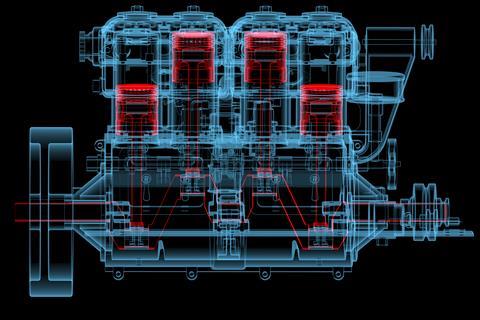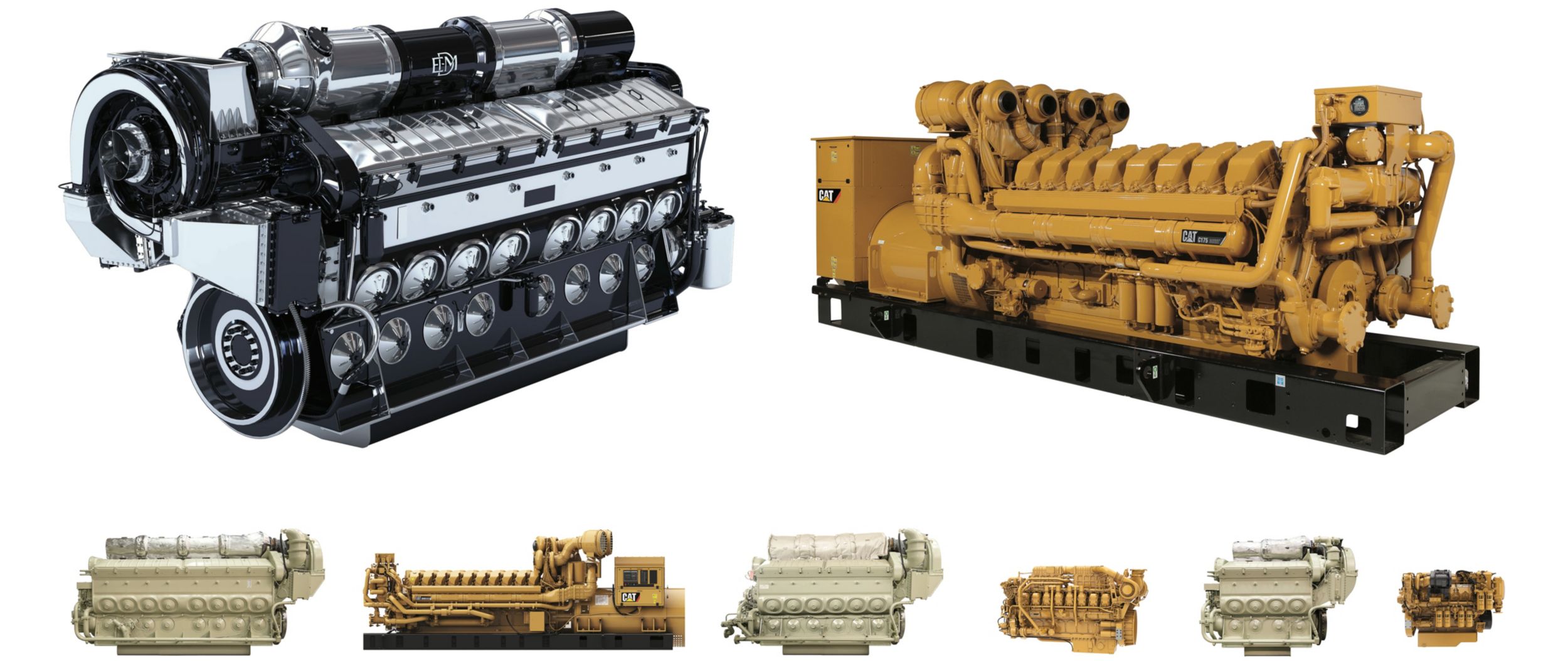Your Go-To Car Components Store for Engines for Africa and Extra
Your Go-To Car Components Store for Engines for Africa and Extra
Blog Article
The Effect of Innovative Engine Technologies on Energy Effectiveness and Environmental Sustainability
In the realm of transportation and commercial machinery, the continual pursuit for enhanced power effectiveness and minimized environmental influence has actually led to substantial developments in engine technologies. From the steady change in the direction of electric and hybrid systems to the assimilation of turbocharging for enhanced effectiveness, the landscape of engines is progressing quickly.
Development of Engine Technologies
The progression of engine innovations over the decades has been noted by consistent development and improvement in quest of improved efficiency and efficiency. From the early days of internal combustion engines to the sophisticated hybrid and electrical powertrains of today, the advancement of engine innovations has been driven by a relentless mission for boosted fuel effectiveness and decreased exhausts.
One considerable milestone in this development was the advancement of turbocharging and straight shot systems, which substantially boosted engine power outcome while enhancing gas performance. These innovations enabled smaller, extra light-weight engines that could supply the efficiency of larger ones without compromising on performance.
In addition, developments in products scientific research have actually caused the prevalent adoption of lightweight products such as light weight aluminum and carbon fiber in engine building and construction. This has not only minimized overall vehicle weight yet has additionally enhanced engine effectiveness by minimizing energy losses connected with inertia and friction.
Benefits of Electric and Hybrid Equipments
With the growing focus on sustainability and energy efficiency, what benefits do hybrid and electrical systems supply in the realm of engine modern technologies? Electric and hybrid systems existing numerous advantages that contribute to a much more lasting and energy-efficient future. One of the key advantages is the substantial reduction in greenhouse gas exhausts contrasted to standard inner combustion engines. Electric cars generate no tailpipe discharges, resulting in improved air top quality and minimized environmental effect. Additionally, hybrid and electric systems are more energy-efficient, converting a higher percent of kept energy into propulsion contrasted to traditional engines. This performance causes reduced power consumption and operating expense over the vehicle's life time. Electric automobiles use regenerative stopping systems that store and catch energy commonly lost throughout braking, better boosting power effectiveness (engines for africa). Crossbreed systems combine the advantages of electric propulsion with the adaptability of a combustion engine, offering extended driving ranges and minimizing range anxiousness for consumers transitioning to electrical automobiles. In general, electrical and hybrid systems play a vital role ahead of time energy performance and ecological sustainability in the transport sector.
Turbocharging for Improved Efficiency
Innovative engine innovations like electric and hybrid systems have led the way for developments in lorry efficiency, with turbocharging emerging as a vital method for boosting overall performance and sustainability. Turbocharging works by using a turbine to require more air right into the burning chamber, permitting far better fuel burning and raised power result without a significant increase in engine size. This procedure, called forced induction, makes it possible for smaller, more fuel-efficient engines to create power levels comparable to larger ones. By taking full advantage of the effectiveness of the combustion procedure, turbocharged engines can achieve improved fuel economic situation and minimized emissions, contributing to environmental sustainability. Furthermore, turbocharging boosts engine responsiveness, giving chauffeurs with an extra vibrant driving experience. The extensive adoption of turbocharged engines in both gas and diesel automobiles demonstrates their effectiveness in stabilizing efficiency, effectiveness, and ecological impact. As vehicle makers remain to improve turbocharging technology, its function in advertising power performance and sustainability in the transport industry is anticipated to expand further.
Utilizing Alternate Gas
Harnessing different gas provides a promising avenue for lowering carbon discharges and diversifying the power resources made use of in transport. As the world makes every effort to battle environment adjustment and decrease dependency on nonrenewable fuel sources, alternative gas have gained substantial interest for their potential ecological and financial benefits.
Biofuels, such as ethanol and biodiesel, are stemmed from renewable sources like corn, sugarcane, and algae, supplying a cleaner burning choice to typical gas and diesel. These fuels can be blended with existing oil fuels or made use of in committed engines, giving a path to reduced greenhouse gas exhausts and enhance air high quality.
Additionally, hydrogen fuel cells have actually arised as a promising innovation for zero-emission transport. engines for africa. By transforming hydrogen gas into electrical power to power electric motors, gas cell vehicles create just water vapor as a result, removing harmful tailpipe emissions totally
Along with minimizing carbon exhausts, alternate gas can additionally enhance power security by diversifying the fuel mix and reducing reliance on imported oil. Accepting alternate gas in transport is a critical step in the direction of achieving a more eco friendly and sustainable future.

Future leads and environmental benefits
The environmental advantages of different fuels and explanation their capacity for long-term sustainability are essential considerations in the shift towards cleaner energy sources. Alternative fuels, such as biofuels, hydrogen, and power, offer considerable ecological benefits compared to standard nonrenewable fuel sources. These fuels generate reduced levels of greenhouse gas discharges, decreasing air pollution and mitigating environment adjustment influences. Additionally, alternate gas can help branch out energy resources, enhancing energy safety and minimizing reliance on check over here finite resources.
Advancements in modern technology proceed to enhance the effectiveness and price of different gas automobiles, making them extra available to customers. By welcoming alternative fuels and cutting-edge modern technologies, the course towards an extra sustainable future becomes increasingly possible.

Conclusion
In conclusion, ingenious engine technologies have played a vital function in improving energy efficiency and promoting environmental sustainability. engines for africa. The advancement of engine innovations, adoption of hybrid and electrical systems, use of turbocharging, and expedition of alternative fuels have all added to lowering discharges and boosting performance. The environmental advantages of these innovations are clear, and there is terrific prospective for further development in the future. Engine modern technologies remain to be a key location of emphasis for achieving a more lasting future.
In the realm of transportation and industrial equipment, the continual quest for boosted power efficiency and reduced ecological influence has led to considerable advancements in engine innovations. Turbocharging works by using a generator to compel more air right into the combustion chamber, enabling for much better gas combustion and increased power outcome without a considerable boost in engine dimension. By optimizing the performance of the combustion procedure, turbocharged engines can achieve better fuel economy and that site decreased emissions, adding to ecological sustainability. Different gas, such as biofuels, hydrogen, and power, offer considerable environmental benefits contrasted to conventional fossil gas. The development of engine modern technologies, fostering of hybrid and electric systems, use of turbocharging, and expedition of alternate gas have all added to lowering exhausts and increasing effectiveness.
Report this page